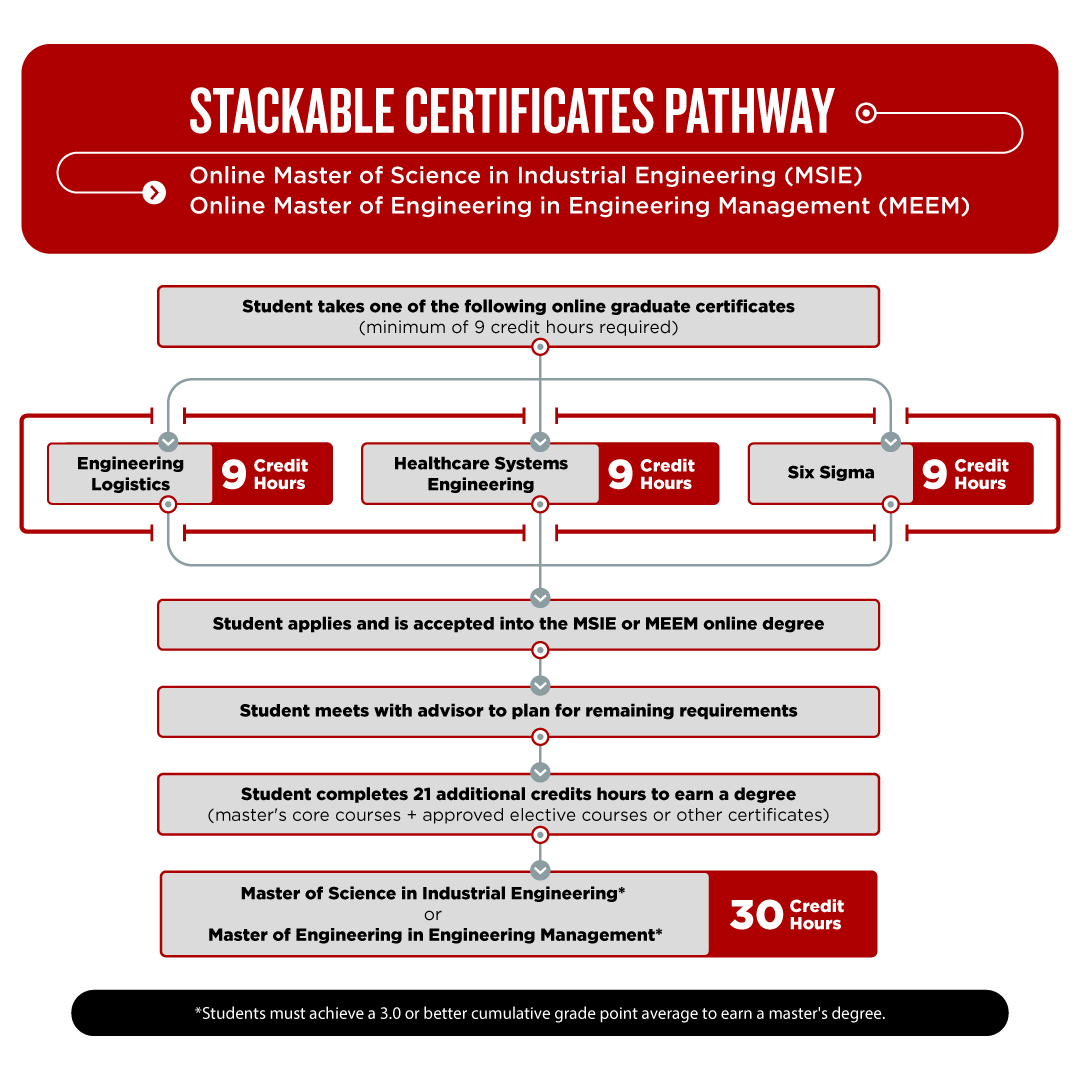Alternative Credentials
At UofL Online, our commitment to providing quality educational opportunities extends beyond standard degrees or certificate programs. We recognize the evolving needs of non-traditional learners in today's dynamic workforce, and as part of this commitment, we are developing alternative pathways to education credentials including stackable certificates, academic badges and non-credit courses.
Alternative credentials leverage the flexibility of online learning which allows students to earn credentials incrementally, building upon their knowledge and skills in a modular fashion while simultaneously providing a new marketable skillset within a specific industry. These opportunities are accessible to individuals at various stages of their careers and can serve as a pathway for further academic pursuits or professional development.
Stackable Online Certificates
Stackable certificates are modular, stand-alone programs (typically 9-12 credit hours each) that allow you to acquire specialized knowledge in a specific field or discipline. Rather than pursuing a traditional, linear educational pathway, stackable certificates can empower you to build expertise gradually. The combined certificate credits can be seamlessly applied toward a related graduate degree.
Benefits of Stackable Certificates
Stackable certificates offer the opportunity to customize your advanced education and learn about the topics you are most interested in, applicable in your current or future career.
Modular and flexible education credentials enable individuals to specialize or diversify their expertise. Each certificate can be earned as a standalone credential and/or as a step toward a future degree. It combines immediate career benefits with the long-term advantage of an advanced degree, offering students a dynamic and customizable approach to their educational and professional development.
Some of the more notable benefits of earning a degree through stackable certificates include:
- Flexibility and customization through a tailored-to-you learning pathway.
- Career relevance and impact in real time, along with potential for enhanced employability.
- Cost-effective education with gradual investment toward a master’s degree*
- Motivation to incrementally reach milestones and stay focused on topics that matter to you.
- Credit transferability to help you ease into the commitment to earn a degree.
- Continuous learning mindset to develop your knowledge and adapt to industry changes.
Earn a Master's Degree
The following graduate programs can be stacked toward a Master of Science in Industrial Engineering (MSIE) or Master of Engineering in Engineering Management (MEEM):
- Six Sigma Certificate (9 chr) [see courses]
- Healthcare Systems Engineering Certificate (9 chr) [see courses]
- Engineering Logistics Certificate (9 chr) [see courses]
MSIE or MEEM Pathway from Certificates to a Master’s Degree
- Upon completion of the first engineering certificate, and before starting a second certificate, students initiate a degree (MSIE or MEEM) plan with their advisor, expressing their interest in earning a master’s along with the second and third certificate.
- Students must apply and be admitted into the MSIE or MEEM program and continue with completing the program’s core courses and elective courses or other certificate(s).
MSIE and MEEM Graduation Requirements
Students must achieve a 3.0 or better cumulative grade point average to earn a certificate, and only courses in which the student has earned a B or better may count toward the degree program.

*Financial aid is available for master’s degrees, but it is not available for the certificate (non-degree) programs in Industrial Engineering.
Students may apply course credit earned from one or more graduate certificate programs towards a master’s or doctoral degree, but they must apply to the degree program prior to beginning a second certificate that will count toward the degree. Use of credit from certificates is subject to admission to the degree-granting program and must be consistent with both curricular and residency requirements of the degree program. Students must achieve a 3.0 or better cumulative grade point average to earn a certificate, and only courses in which the student has earned a B or better may count toward the degree program.